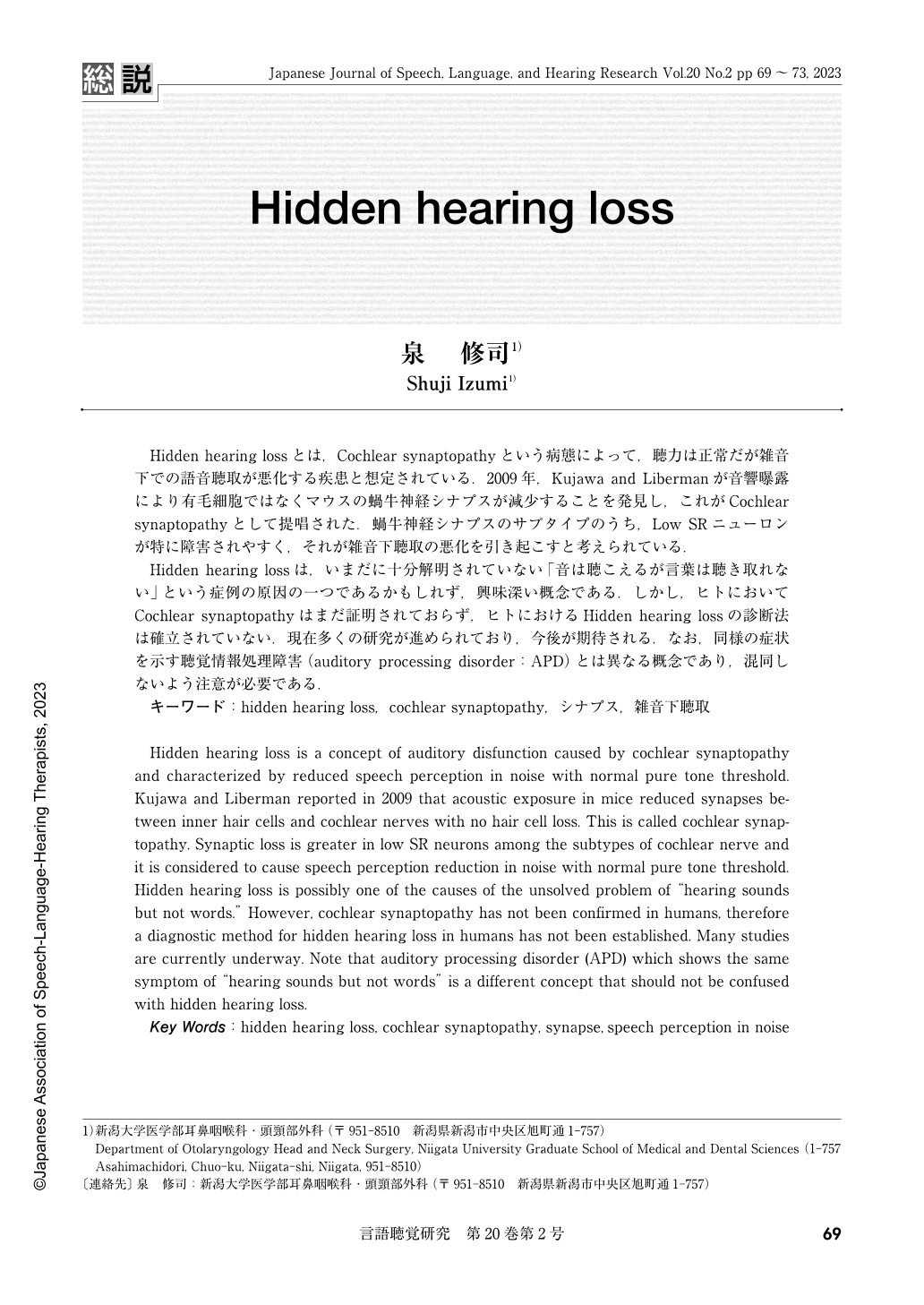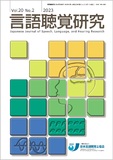Japanese
English
- 有料閲覧
- Abstract 文献概要
- 1ページ目 Look Inside
- 参考文献 Reference
Hidden hearing lossとは,Cochlear synaptopathyという病態によって,聴力は正常だが雑音下での語音聴取が悪化する疾患と想定されている.2009年,Kujawa and Libermanが音響曝露により有毛細胞ではなくマウスの蝸牛神経シナプスが減少することを発見し,これがCochlear synaptopathyとして提唱された.蝸牛神経シナプスのサブタイプのうち,Low SRニューロンが特に障害されやすく,それが雑音下聴取の悪化を引き起こすと考えられている.
Hidden hearing lossは,いまだに十分解明されていない「音は聴こえるが言葉は聴き取れない」という症例の原因の一つであるかもしれず,興味深い概念である.しかし,ヒトにおいてCochlear synaptopathyはまだ証明されておらず,ヒトにおけるHidden hearing lossの診断法は確立されていない.現在多くの研究が進められており,今後が期待される.なお,同様の症状を示す聴覚情報処理障害(auditory processing disorder:APD)とは異なる概念であり,混同しないよう注意が必要である.
Hidden hearing loss is a concept of auditory disfunction caused by cochlear synaptopathy and characterized by reduced speech perception in noise with normal pure tone threshold. Kujawa and Liberman reported in 2009 that acoustic exposure in mice reduced synapses between inner hair cells and cochlear nerves with no hair cell loss. This is called cochlear synaptopathy. Synaptic loss is greater in low SR neurons among the subtypes of cochlear nerve and it is considered to cause speech perception reduction in noise with normal pure tone threshold. Hidden hearing loss is possibly one of the causes of the unsolved problem of “hearing sounds but not words.” However, cochlear synaptopathy has not been confirmed in humans, therefore a diagnostic method for hidden hearing loss in humans has not been established. Many studies are currently underway. Note that auditory processing disorder (APD) which shows the same symptom of “hearing sounds but not words” is a different concept that should not be confused with hidden hearing loss.

Copyright © 2023, Japanese Association of Speech-Language-Hearing Therapists. All rights reserved.


